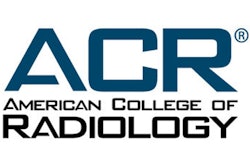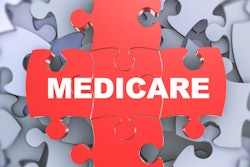
A consolidated spending bill passed by the U.S. Congress on December 21 eases the impact of proposed cuts in Medicare reimbursement that would have occurred due to changes to the Medicare Physician Fee Schedule (MPFS). Radiology groups are lauding the bill's passage.
Titled the "Consolidated Appropriations Act, 2021," Senate votes were 92 in favor of the legislation to six against; the House of Representatives voted 359 for the legislation and 53 against, according to the Associated Press. The bill has been sent to President Donald Trump for his signature.
The American College of Radiology (ACR) lauded the legislation, noting that it not only reduces Medicare provider payment cuts due to evaluation and management (E/M) coding changes from 10% to 4% but also revises current policy on surprise medical billing and delays by a year cuts to radiation oncology payments.
"Even in such a divided political atmosphere, worsened by the impact of COVID-19, the ACR worked with members of Congress to significantly improve the Medicare payment, 'surprise billing' and radiation oncology provisions in this legislation," ACR Board of Chancellors Chair Dr. Howard Fleishon said in a statement released by the college.
The bill includes language proposed just prior to the package's passage that mitigates the impact of the cuts. The new provisions establish a three-year delay of a new code created by the rule, which will ease physician fee cuts; an extension of the current alternative payment model (APM) thresholds for two additional years; and a three-month delay of the 2% sequester cuts that were to go into effect on January 1.
"With the economic impact of COVID-19, immediate double-digit Medicare provider cuts would have devastated patient access, communities, and provider practices," Fleishon said. "The mitigation in this bill is a far better immediate outcome for radiologists and other providers than we would have otherwise faced January 1. The ACR will continue to work with lawmakers and regulators to promote better payment policies that strengthen healthcare quality, equity, and access."




















